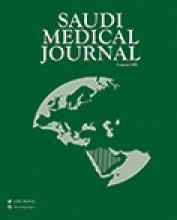DECEMBER 16, 2019 - Survival rates for patients with breast cancer have improved significantly in the last four decades, and many patients will eventually die from non–cancer-related causes. Researchers recently conducted the largest population-based long-term retrospective analysis of non-cancer causes of death among patients with breast cancer. The findings are published early online in CANCER, a peer-reviewed journal of the American Cancer Society.
Of 754,270 U.S. women diagnosed with breast cancer from 2000 to 2015, 24.3 percent died by the end of 2015. The highest number of deaths (46.2 percent) occurred within one to five years following diagnosis, and most were caused by breast cancer or other cancers. Breast cancer–related deaths decreased as years passed, however, and were eventually overcome by non–breast cancer causes of death. Within five to 10 years following diagnosis, about half of patients died of non–breast cancer causes, whereas the majority of those who survived beyond 10 years died of non–breast cancer causes.
The most common non-cancer causes of death within 10 years of diagnosis were heart diseases, followed by cerebrovascular diseases. After more than 10 years following diagnosis, the most common non-cancer causes of death were heart diseases, followed by Alzheimer’s disease.
Compared with the general population, patients had a higher risk of dying from chronic liver diseases within 5-10 years following diagnosis, and from Alzheimer’s disease and heart diseases after more than 10 years following diagnosis.
“Non-cancer diseases, such as heart diseases, contribute to a significant number of deaths in patients with breast cancer, even higher than in the general population,” said senior author Mohamad Bassam Sonbol, MD, of Mayo Clinic in Phoenix, Arizona. “Cancers other than breast cancer are also an important cause of death in patients with a history of breast cancer.”
The results will be informative for survivors in discussions with physicians about their future health. “Our findings emphasize the importance of counseling patients about their survivorship and risk of developing other cancers, with a focus on proper screening or preventive measures for other cancers and diseases,” added Dr. Sonbol.
Full citation: “American Society for Bone and Mineral Research-Orthopaedic research society joint task force report on cell-based therapies.” Regis J. O’keefe, Rocky S. Tuan, Nancy E. Lane, Frank Barry, Bruce A. Bunnell, Celine Colnot, Matthew T. Drake, Hicham Drissi, Lisa A. Fortier, Robert e. Guldberg, David G. Little, Mary F. Marshall, Jeremy J. Mao, Normasa Nakamura, Pamela G. Robey, Vicki Rosen, David W. Rowe, Edward M. Schwarz. ASMBR; Published Online: September 23, 2019 (DOI: 10.1002/jbmr.3839). URL Upon Publication: http://doi.wiley.com/10.1002/jbmr.3839
Copyright © 22020 The Cochrane Collaboration. Published by John Wiley & Sons, Ltd., reproduced with permission.
- Copyright: © Saudi Medical Journal
This is an open-access article distributed under the terms of the Creative Commons Attribution-Noncommercial-Share Alike 3.0 Unported, which permits unrestricted use, distribution, and reproduction in any medium, provided the original work is properly cited.






